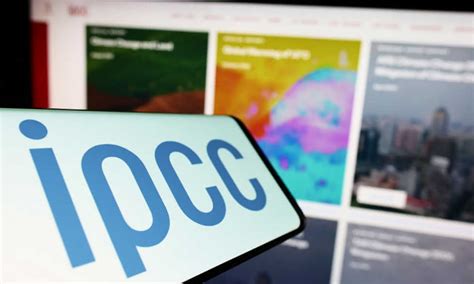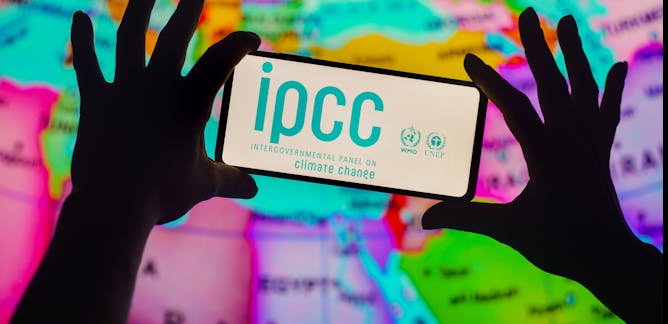OK
Investigate this topic thoroughly with gameslino.com
1. Why: Importance of the IPCC Intergovernmental Panel on Climate Change
The Intergovernmental Panel on Climate Change (IPCC) is crucial in addressing global climate challenges by providing comprehensive and scientifically rigorous assessments of climate change, its impacts, and potential adaptation and mitigation strategies. Established in 1988 by the United Nations Environment Programme (UNEP) and the World Meteorological Organization (WMO), the IPCC gathers experts worldwide to evaluate the latest climate science and offer insights to policymakers and the public.
The IPCC’s reports are essential for understanding the complex dynamics of Earth’s climate system, highlighting the human activities contributing to climate change, such as greenhouse gas emissions. By synthesizing vast scientific data, the IPCC identifies trends, forecasts future scenarios, and underscores the urgency of taking action to limit global warming and its associated impacts.
The work of the IPCC is pivotal in guiding international climate negotiations, such as the United Nations Framework Convention on Climate Change (UNFCCC) and the Paris Agreement, by providing the scientific basis for informed decision-making. Through its assessments, the IPCC empowers governments, businesses, and communities to develop effective policies and strategies to combat climate change, ultimately striving for a sustainable and resilient future for our planet.

2. Why: Recent Climate Findings
The latest climate data underscores the urgent need to tackle the escalating effects of climate change. The IPCC’s recent reports reveal a dramatic increase in global temperatures, with the past decade marking the hottest on record. These findings emphasize the growing frequency and intensity of extreme weather events, including hurricanes, floods, and heatwaves, which are directly linked to rising greenhouse gas emissions.
The rapid melting of ice sheets in Greenland and Antarctica is a major cause for concern, as it directly contributes to rising sea levels. This poses a significant threat to coastal communities globally, potentially leading to displacement and habitat loss. Furthermore, the IPCC reports a disturbing decline in biodiversity, with numerous species facing extinction due to habitat destruction and changing climate conditions.
The findings highlight the continued rise in carbon dioxide levels, now at their highest point in millions of years, largely due to human actions such as the burning of fossil fuels and deforestation. These trends have significant consequences for global food security, water resources, and health, with vulnerable populations bearing the brunt of these impacts.
The latest IPCC report acts as a powerful wake-up call for urgent and ongoing climate action. It provides crucial scientific backing for developing policies and programs designed to reduce greenhouse gas emissions, adapt to the consequences of climate change, and encourage global collaboration towards a sustainable and resilient world.

3. How: Methodology of the IPCC Report
The IPCC Report’s methodology is a rigorous and comprehensive process designed to ensure accuracy, credibility, and transparency in its findings. The IPCC assembles thousands of scientists and experts from diverse fields worldwide to contribute to the report, which involves a thorough review of the latest scientific literature on climate change.
The process begins with selecting a team of experts who assess existing research and synthesize findings across various disciplines, including climate science, economics, and social sciences. These experts draft reports focusing on specific climate-related topics, such as the physical science basis of climate change, impacts, adaptation, and mitigation strategies.
Once the draft is prepared, it undergoes an extensive peer review process, involving feedback from hundreds of additional scientists and government representatives. This ensures that the report reflects a consensus among the global scientific community and considers diverse perspectives.
The IPCC also employs a robust framework for evaluating the confidence levels and uncertainties associated with its findings, ensuring that policymakers and the public receive an accurate and balanced representation of the current scientific understanding.
This meticulous methodology ensures that the IPCC reports serve as authoritative resources for informing global climate policy and action, providing critical insights into the complex dynamics of the Earth’s climate system.

4. How: Implications for Policy and Action
The implications of the IPCC reports for policy and action are profound, offering critical insights that guide international and national climate strategies. By presenting the most up-to-date and comprehensive scientific data on climate change, these reports inform policymakers about the urgent need to implement effective measures to mitigate and adapt to climate impacts.
One of the key implications is the necessity for immediate reductions in greenhouse gas emissions. The IPCC emphasizes the importance of transitioning to renewable energy sources, enhancing energy efficiency, and implementing sustainable land-use practices. These measures are essential for limiting global warming to 1.5°C above pre-industrial levels, as outlined in the Paris Agreement.
Furthermore, the IPCC highlights the importance of climate adaptation strategies to protect vulnerable communities and ecosystems. This includes developing infrastructure to withstand extreme weather events, preserving natural habitats, and investing in resilient agricultural practices.
The reports also underscore the need for global cooperation and multilateral efforts to address climate change effectively. This involves strengthening international agreements, increasing financial support for developing countries, and fostering technology transfer and innovation.
For policymakers, the IPCC reports serve as a roadmap for formulating climate action plans that balance economic growth with environmental sustainability. By translating scientific findings into actionable strategies, governments can implement policies that drive transformative change, ensuring a sustainable future for generations to come.
5. What: Key Recommendations for Future Climate Action
The Intergovernmental Panel on Climate Change (IPCC) urges immediate and sweeping changes across all sectors to effectively combat climate change. A cornerstone of their recommendations is a dramatic reduction in greenhouse gas emissions through a transition to clean energy sources, such as wind, solar, and hydropower. This shift necessitates phasing out fossil fuels, improving energy efficiency, and investing in sustainable technologies.
The IPCC emphasizes the need to bolster climate adaptation efforts. This entails enhancing infrastructure to resist extreme weather events, establishing water management systems to adapt to shifting rainfall patterns, and safeguarding biodiversity through conservation initiatives. Adapting agriculture to climate impacts by fostering sustainable practices and developing climate-resilient crops is crucial for guaranteeing food security.
Furthermore, the IPCC emphasizes the crucial need for integrating climate considerations into all levels of policy and decision-making. Governments, businesses, and communities must collaborate effectively to develop inclusive and equitable climate action plans. These plans should prioritize the needs of vulnerable populations and promote social justice to ensure a fair and just transition to a sustainable future.
The IPCC further advocates for bolstering financial support dedicated to climate research, innovation, and education. This, they argue, is crucial for developing effective solutions and raising public awareness. By embracing these recommendations, global leaders can cultivate a sustainable future, one that fosters economic growth while safeguarding the planet.
6. What: Next Steps and Future Reports
The IPCC’s next steps involve continuing to provide rigorous scientific assessments and updates on climate change to guide global policy and action. Future reports will focus on addressing emerging climate issues, refining climate models, and exploring innovative solutions to mitigate and adapt to climate impacts. These reports will integrate the latest scientific research and data, offering detailed analyses of climate trends and their implications for ecosystems, economies, and societies worldwide.
The IPCC plans to enhance collaboration with governments, scientific communities, and international organizations to ensure its findings are effectively translated into actionable strategies. This includes fostering interdisciplinary research, encouraging stakeholder engagement, and promoting the dissemination of knowledge to a broader audience.
In its future reports, the IPCC will also prioritize assessing the progress of global climate commitments, evaluating the effectiveness of implemented policies, and identifying areas needing further action. This ongoing work will be crucial in tracking the world’s progress toward achieving climate goals, such as those outlined in the Paris Agreement.
By maintaining its commitment to scientific excellence and transparency, the IPCC will continue to play a vital role in guiding climate action, empowering decision-makers, and fostering global cooperation to address the climate crisis effectively.
The IPCC’s reports are essential for understanding climate change and guiding global action. By highlighting urgent findings, rigorous methodologies, and actionable recommendations, the IPCC provides a critical framework for policymakers and stakeholders. Future reports will continue to build on this foundation, ensuring that climate strategies evolve with the latest science to effectively combat the climate crisis and secure a sustainable future.
gameslino.com

